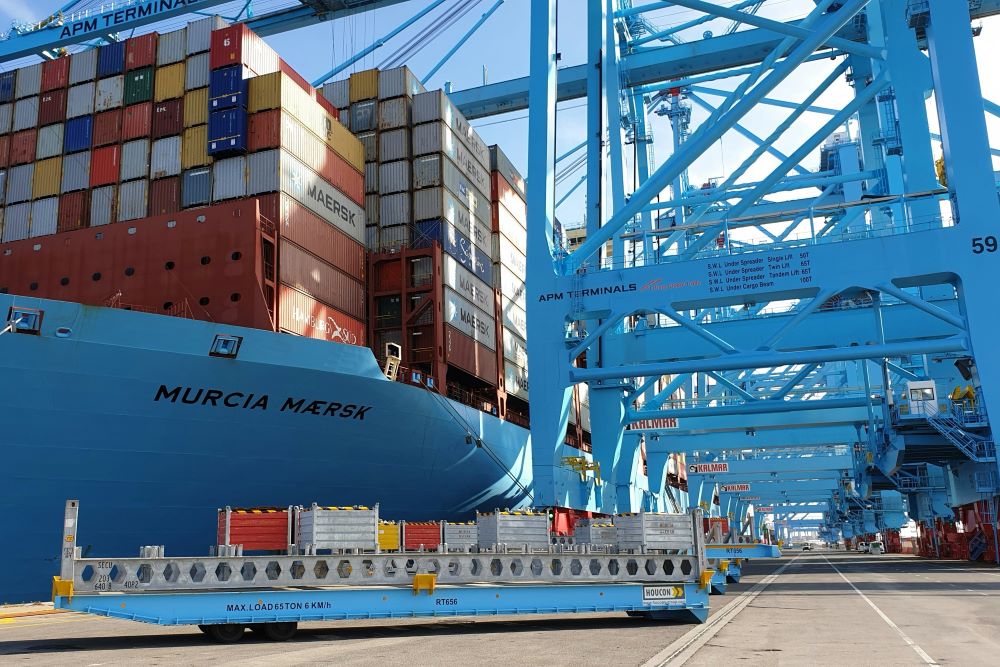
Current position:Home > News
2025-09-12
The global e-commerce landscape continues to expand at an unprecedented pace. Consumers increasingly expect fast, reliable, and convenient delivery. Door-to-door international shipping has emerged as a crucial service to meet these demands. Companies like JTT provide tailored logistics solutions that simplify cross-border transactions.
Cross-border e-commerce has transformed international retail. Consumers can now purchase products from any country. Global platforms enable direct access to overseas markets. Consequently, the demand for efficient shipping solutions rises.
Customers expect their orders to arrive quickly and intact. Traditional shipping methods often fail to meet these expectations. Delays, lost parcels, and complicated customs processes discourage cross-border purchases. Door-to-door shipping addresses these issues by providing reliable, end-to-end delivery.
Moreover, cross-border trade is no longer limited to large retailers. Small and medium-sized enterprises increasingly engage in international e-commerce. For these businesses, logistics efficiency directly impacts competitiveness. Companies that adopt door-to-door international shipping gain a decisive advantage.

Consumer behavior has shifted dramatically. Convenience, speed, and transparency guide purchasing decisions. Shoppers track packages in real-time and expect seamless customs clearance. Door-to-door international shipping provides a single solution for these expectations.
Additionally, consumers demand flexibility in delivery options. Alternative drop-off points, home delivery windows, and proactive communication enhance satisfaction. Logistics providers must integrate technology to meet these expectations. Companies like JTT use advanced tracking systems to provide real-time updates and precise delivery notifications.
Security and package integrity also remain central. High-value items, fragile goods, and temperature-sensitive products require careful handling. Door-to-door shipping ensures professional management throughout the supply chain, reducing the risk of damage or loss.
Overseas direct purchase fuels the need for door-to-door services. Consumers seek authentic products from international markets. This trend spans categories including fashion, electronics, cosmetics, and health supplements.
Direct purchases from overseas vendors often involve complex shipping regulations. Customs documentation, import taxes, and local regulations can delay delivery. Door-to-door services simplify this process by handling all paperwork and compliance requirements. This approach increases consumer trust and reduces barriers to purchase.
Furthermore, subscription-based models and limited-edition releases increase demand for timely delivery. Customers anticipate receiving products shortly after release. Logistics providers must ensure efficiency and accuracy to meet these expectations.
Global retail expansion drives logistics innovation. Brands aim to reach new markets while maintaining customer satisfaction. Door-to-door international shipping allows retailers to maintain consistent service quality worldwide.
Retailers benefit from predictable delivery schedules and lower operational complexity. By outsourcing international logistics, companies can focus on core business functions such as marketing, product development, and customer engagement.
Moreover, global retail consumers increasingly prefer seamless experiences. Integrated shipping solutions, transparent pricing, and responsive support influence purchasing decisions. Door-to-door international shipping addresses these requirements effectively.
Technology plays a vital role in the rise of door-to-door shipping. Advanced tracking systems, AI-powered route optimization, and automated customs clearance improve reliability.
Real-time monitoring allows logistics providers to adjust routes proactively. Predictive analytics anticipate delays, weather disruptions, and peak periods. This technology ensures consistent delivery timelines.
Additionally, cloud-based platforms integrate all stakeholders. Retailers, shipping providers, and customers access centralized information. Transparency and communication improve efficiency and customer satisfaction simultaneously.
Despite advantages, challenges persist. Customs regulations differ across countries, causing potential delays. Accurate documentation, compliance verification, and tariff management are essential.
High shipping costs also present challenges, particularly for small businesses. Providers must balance speed, reliability, and affordability. Efficient route planning and volume consolidation reduce expenses without compromising quality.
Package security remains critical. Theft, damage, or misplacement can impact consumer trust. Robust handling procedures, secure packaging, and professional couriers mitigate risks. Providers like JTT prioritize these elements to enhance service reliability.
Leading e-commerce platforms increasingly integrate door-to-door international shipping. Successful implementations demonstrate shorter delivery times, improved customer satisfaction, and higher repeat purchase rates.
Global fashion brands benefit from direct-to-consumer deliveries. Products reach overseas markets without intermediaries, reducing delays and logistical complexity. Similarly, electronics companies leverage door-to-door solutions for warranty-sensitive items.
Small businesses also achieve international growth. By adopting reliable shipping providers, SMEs expand their market reach while minimizing operational strain. These case studies illustrate that door-to-door services democratize access to global commerce.
Sustainability is a growing concern in international logistics. Consumers and regulators demand eco-friendly shipping options. Consolidated shipments, optimized transport routes, and low-emission vehicles reduce environmental impact.
Door-to-door providers increasingly adopt sustainable practices. Biodegradable packaging, energy-efficient warehousing, and carbon-offset programs align logistics operations with environmental goals. Companies that integrate sustainability attract environmentally conscious consumers and build brand reputation.
Door-to-door international shipping represents a critical component of modern e-commerce logistics. It addresses the challenges of cross-border trade, enhances consumer experience, and supports global retail growth.
Reliable, efficient, and technologically advanced logistics solutions allow businesses to meet rising consumer expectations. Providers like JTT offer tailored services that simplify international shipping while maintaining transparency and security.
Investing in door-to-door international shipping is no longer optional. It is a strategic decision that drives global market access, customer satisfaction, and sustainable business growth. Companies that embrace this model will thrive in the evolving e-commerce landscape.